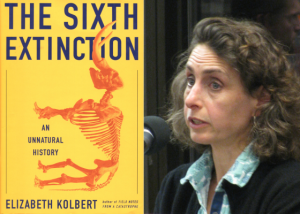13.2.3 Biodiversity Loss/Extinction
William Patterson
Many scientists believe the world is currently experiencing its sixth mass extinction. Elizabeth Kolbert warns in her Pulitzer Prize-winning book The Sixth Extinction that “It is estimated that one-third of all reef-building corals, a third of all freshwater mollusks, a third of sharks and rays, a quarter of all mammals, a fifth of all reptiles, and a sixth of all birds are headed toward oblivion” (2014, p. 17). While previous extinction events were brought about naturally – such as through massive meteor strikes – this one is primarily human generated. Human beings bring about extinctions in numerous ways. Sometimes it is by outright extermination, overhunting or overfishing, with the famous (but by no means only) example being the dodo bird; other times, it occurs through habitat destruction; and thirdly as a side effect of other environmental changes brought about by human activity, such as climate change.

Once extinct, a species is gone forever, though there are growing efforts to acquire and store samples of DNA that may allow for the future resurrection of lost species. Biodiversity loss has several negative consequences. The loss of even a few species can disrupt entire ecosystems, the extinction of plants with undiscovered medicinal properties forecloses the possibility of potential cures, human beings lose the pleasure of seeing and interacting with extinct wildlife, and of course there is the irrecoverable loss to the extinct species themselves.
Media Attributions
- Elizabeth Kolbert © Slowking is licensed under a CC BY-NC (Attribution NonCommercial) license

